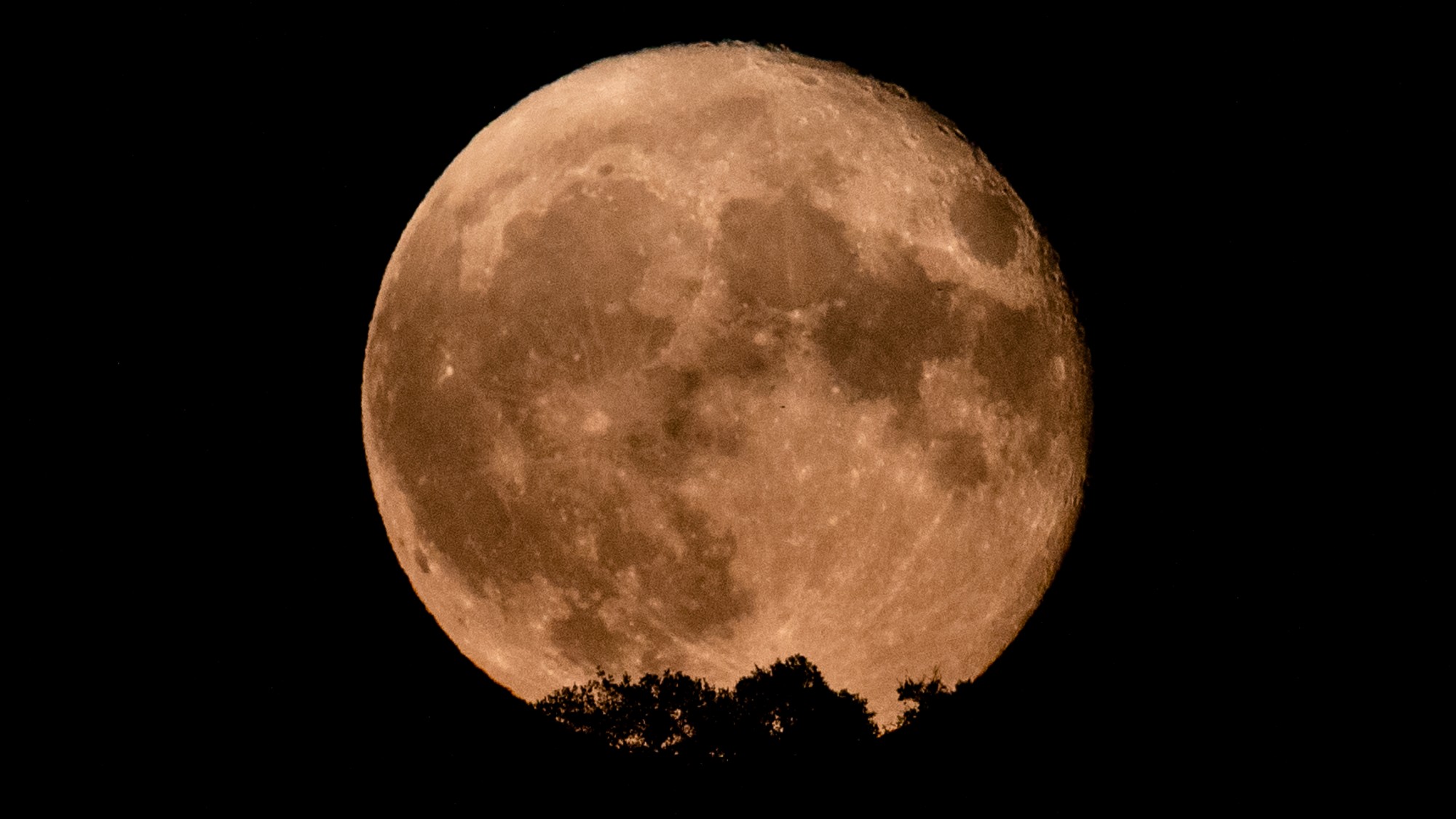The moon is older than we thought
New data adds 40 million years to the satellite's age


A free daily email with the biggest news stories of the day – and the best features from TheWeek.com
You are now subscribed
Your newsletter sign-up was successful
Our planet's trusty satellite has been around longer than we previously thought. Scientists analyzed lunar crystals brought back by Apollo 17 astronauts in 1972, and determined the moon was actually 4.46 billion years old, 40 million years older than previously believed, per a new study published in the journal Geochemical Perspective Letters. “It moves the goal post,” Jennika Greer, who worked on the study, told The Washington Post. “It pushes back the minimum age of the moon formation.”
Researchers studied minerals in lunar dust called zircons, which are “cosmic timepieces that started ticking once that magma ocean cooled and solidified,” per the Post. The zircon pieces analyzed in the study are the oldest to date. However, many were skeptical that the age was accurate, given that these crystals were older than any other samples. “It’s been controversial for the last 50 years, since the 1970s when the astronauts brought back the samples from the moon,” Bidong Zhang, who led the study, told the outlet. “Apollo rocks were very consistent at 4.3 billion years old. That’s why people are like: ‘Why would this age be different?’"
Scientists have long believed that the moon came to be after a Mars-sized object crashed into the Earth resulting in a large fragment breaking off and becoming the moon. The debate was when this occurred. "Our atom probe analysis concluded the study and leaves no doubt about the 4.46-billion-year age of the zircon," Phillipp Heck, senior author of the study, told Newsweek. "I was very happy to see that with our new study the old age of the zircon crystals could be nailed down without a doubt.”
The Week
Escape your echo chamber. Get the facts behind the news, plus analysis from multiple perspectives.

Sign up for The Week's Free Newsletters
From our morning news briefing to a weekly Good News Newsletter, get the best of The Week delivered directly to your inbox.
From our morning news briefing to a weekly Good News Newsletter, get the best of The Week delivered directly to your inbox.
A free daily email with the biggest news stories of the day – and the best features from TheWeek.com
Devika Rao has worked as a staff writer at The Week since 2022, covering science, the environment, climate and business. She previously worked as a policy associate for a nonprofit organization advocating for environmental action from a business perspective.
-
 How the FCC’s ‘equal time’ rule works
How the FCC’s ‘equal time’ rule worksIn the Spotlight The law is at the heart of the Colbert-CBS conflict
-
 What is the endgame in the DHS shutdown?
What is the endgame in the DHS shutdown?Today’s Big Question Democrats want to rein in ICE’s immigration crackdown
-
 ‘Poor time management isn’t just an inconvenience’
‘Poor time management isn’t just an inconvenience’Instant Opinion Opinion, comment and editorials of the day
-
 NASA’s lunar rocket is surrounded by safety concerns
NASA’s lunar rocket is surrounded by safety concernsThe Explainer The agency hopes to launch a new mission to the moon in the coming months
-
 Nasa’s new dark matter map
Nasa’s new dark matter mapUnder the Radar High-resolution images may help scientists understand the ‘gravitational scaffolding into which everything else falls and is built into galaxies’
-
 Moon dust has earthly elements thanks to a magnetic bridge
Moon dust has earthly elements thanks to a magnetic bridgeUnder the radar The substances could help supply a lunar base
-
 How Mars influences Earth’s climate
How Mars influences Earth’s climateThe explainer A pull in the right direction
-
 The ‘eclipse of the century’ is coming in 2027
The ‘eclipse of the century’ is coming in 2027Under the radar It will last for over 6 minutes
-
 NASA discovered ‘resilient’ microbes in its cleanrooms
NASA discovered ‘resilient’ microbes in its cleanroomsUnder the radar The bacteria could contaminate space
-
 Artemis II: back to the Moon
Artemis II: back to the MoonThe Explainer Four astronauts will soon be blasting off into deep space – the first to do so in half a century
-
 The mysterious origin of a lemon-shaped exoplanet
The mysterious origin of a lemon-shaped exoplanetUnder the radar It may be made from a former star
